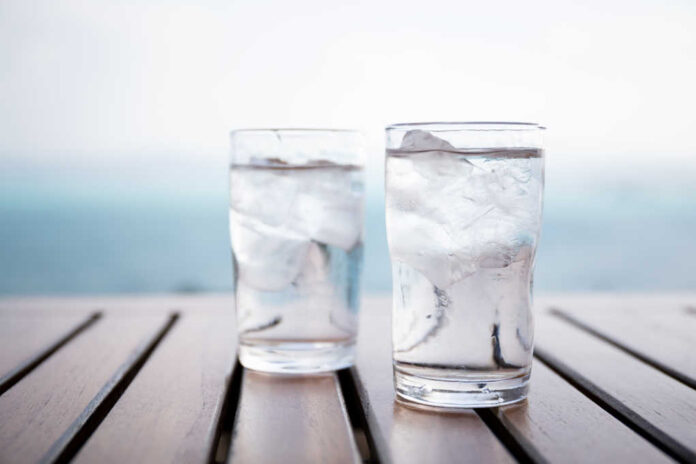
According to traditional Chinese medicine, similarly, you should not drink cold water in Ayurvedic medicine. This recommendation typically comes attached to some explanation about causing an imbalance with the “digestive fires.”
But is it true? Is cold water bad for you?
There hasn’t been very much scientific research investigating this topic. The studies that have been done so far suggest that cold water can be helpful in some cases, slightly harmful in other cases, but more often than not, it doesn’t matter very much.
When Is Warm Water Better?
If you’re congested or have trouble swallowing food, cold water won’t do much to help you other than keeping you hydrated.
When you have a sore throat, you may have noticed that hot drinks feel more soothing than cold ones. And when you have a stuffy nose, a bowl of hot soup or a cup of hot tea can open up your sinuses and help you drain out some of the mucus.
Ice-cold water can sometimes trigger these headaches for people who often get migraines, often called brain freeze. This process happens due to the rapid constriction of blood vessels on the roof of your mouth.
When Is Cold Water Better?
Most of the time, colder water doesn’t cause any noticeable harm. There are certain cases where it may be better.
Cool water, but not ice-cold or refrigerated water, appears to be optimal for regulating core temperature during exercise and sports performance. This could lead to athletes extending their workout by a few minutes or allowing them to run a little bit faster or farther without overheating, which can make all the difference in competitions where seconds matter.
Warm water might make you feel less thirsty quicker, but this could lead to under-hydration. Participants who drank cool water, around 60°F, tended to drink more water and therefore fully rehydrate themselves better. Cool water can also better control the sweating response after intense heat or exercise.
Does It Matter?
There isn’t any strong evidence that cold water is dangerous or unhealthy.
Drinking water of any temperature is vitally important. Many people are often mildly dehydrated and don’t even realize it. It can be a significant factor in low energy, impaired concentration and memory, dry skin, constipation, and insomnia.
If you’re not drinking lots of water throughout the day, you should consider increasing your intake, regardless of the temperature. You might be surprised by how much better you feel when you start taking hydration seriously.






















